#25 From the Twitter archives, part 10: Hooliganism and the radical transformation of football
Focusing especially on the two tragedies that changed everything.
The old ultraviolence
I remember hearing often about football hooliganism as a kid in the 80s. As a serious problem of the day, there was much talk about what was to be done about it. Finally something major was done—and the action taken turned British football into the monster of global Capital it is today.
Aggro
Having become an international talking point in the 60s, British football hooliganism had grown into quite a grave problem by the 70s. Fierce animosities had developed between rival clubs’ fans, and matches had come to be frequently marred by violence, either inside the football grounds or, more commonly, outside. Millwall FC, West Ham, etc had all had acquired their own ‘firms’—hardcore hooligan gangs who were the main instigators of violence, egging on other, less committed supporters (the ‘casual’ hooligans).
The Old Bill
The authorities’ solution was special trains to transport fans, a heavy police presence on matchdays, as well as cage-like fencing to separate fans from the pitch and prevent pitch invasions. But hooliganism did not go away. And then, in 1985, tragedy struck.
A first disaster
It was the European Cup Final between Juventus and Liverpool. The venue was the Heysel Stadium in Brussels. About an hour before kick-off, some Liverpool fans charged Juventus supporters, who tried to flee. In their panic they pressed against a concrete retaining wall, and some were crushed.
Eventually the wall collapsed, allowing many fans to climb away to safety, even as others lay dead, dying or injured. In total 39 people died; around 600 suffered injuries. Strangely, the match was not called off. Juventus won 1-0.
Home to roost
Heysel led to much soul-searching in Britain, in Liverpool in particular. How to prevent such hooligan-caused disasters? By a dark coincidence, tragedy was to touch Liverpool FC again 4 years later, this time with the club’s own fans as the victims. Hillsborough.
Lightning strikes twice
Liverpool were to play Nottingham Forest in an FA Cup semi-final at Hillsborough Stadium in Sheffield. As the official account has it: before kick-off, as they were shepherding fans into the stadium, the police made a fatal mistake. To ease overcrowding outside entrance turnstiles the police opened another entrance. A fatal crush resulted inside the stadium,in one of the pens where fans were quite literally caged (cages had been adopted to combat hooliganism, as you’ll recall). The death toll was terrible: 96 lost their lives and 766 were injured.
Walk alone
In the days and weeks after the disaster, police and the right-wing press claimed hooliganism on the part of Liverpool fans was to blame for the disaster. This remains controversial to this day. Whatever the Hillsborough tragedy’s true cause (hooliganism or official incompetence), it was realised there’d have to be some radical changes in football.
Transformation
In the top two divisions of English football the ‘cages’ were removed and a transition to full-seater stadiums began. Around the same time the FA entered into negotiations with Rupert Murdoch’s Sky TV, which wanted exclusive broadcast rights to all top-flight league matches.
Sky’s the limit
In the event, Murdoch injected vast sums of money into English football, transforming the First Division into the Premier League, the matches of which were only shown live on Sky. Ticket prices rose rapidly, pricing out many working-class fans. The hooligans seemed to have been beat.
Legacy
In fact, although hooliganism largely disappeared at the club level, hardcore groups continued to travel with the English national team, occasionally instigating trouble abroad. The possible root causes of hooliganism are interesting, but I’ll get on to them in another post.



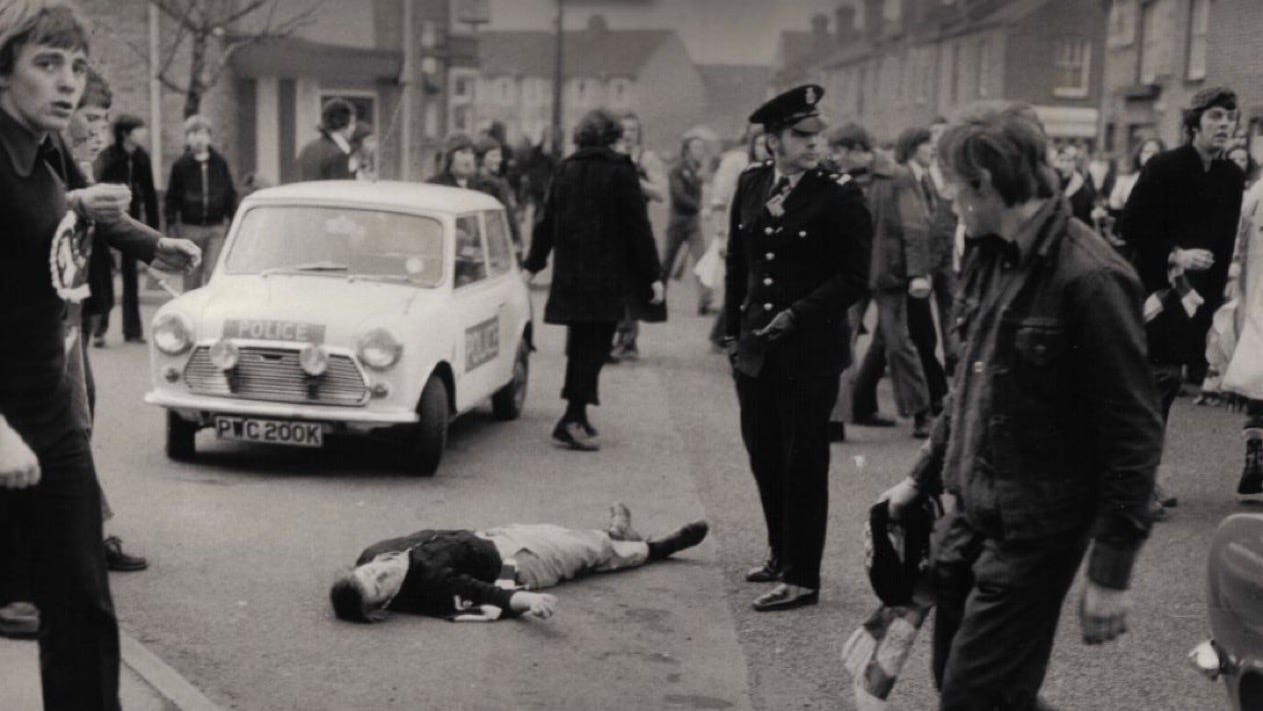
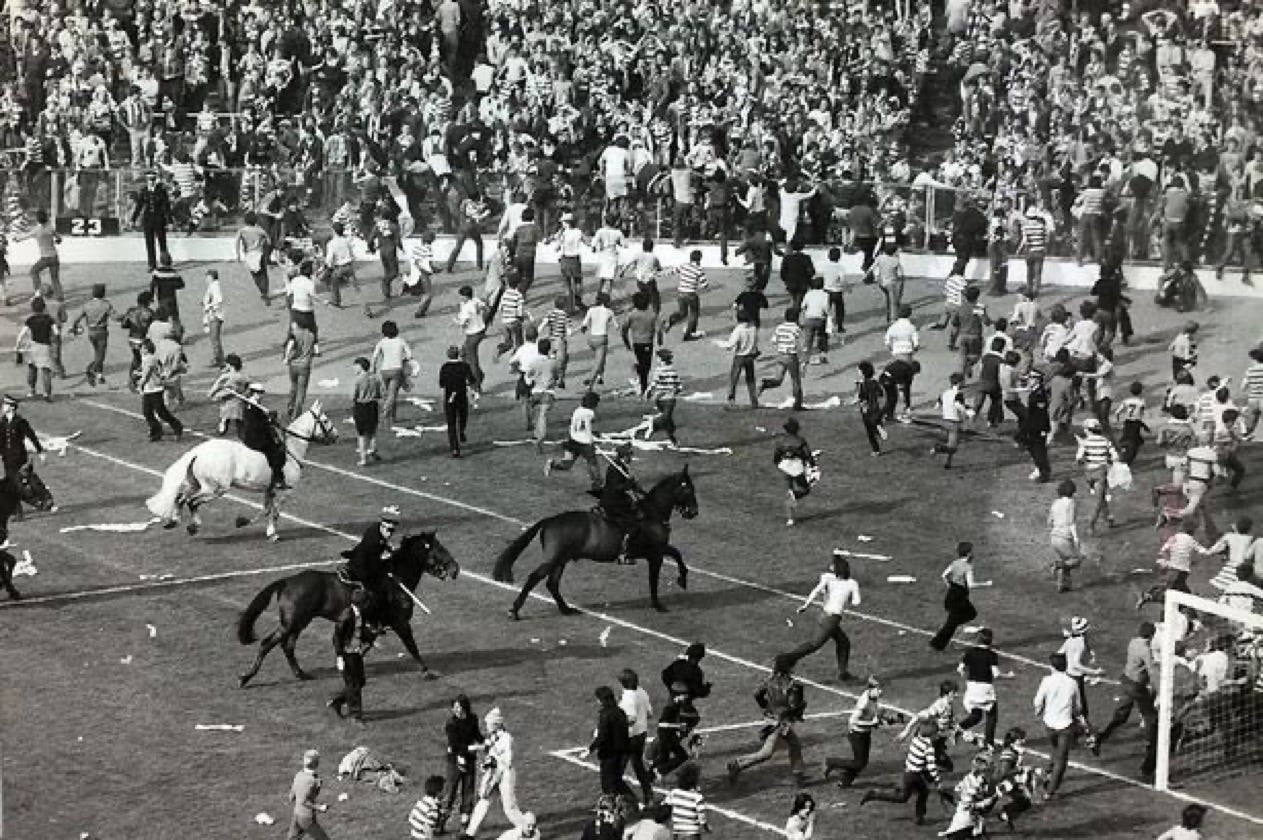
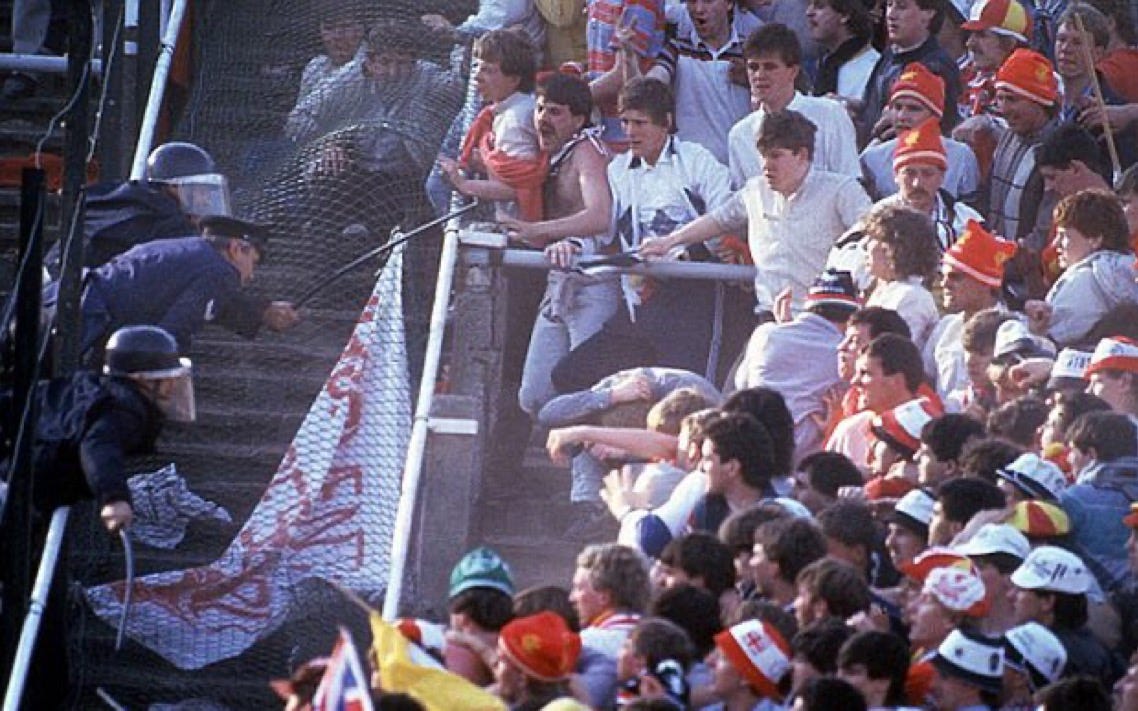
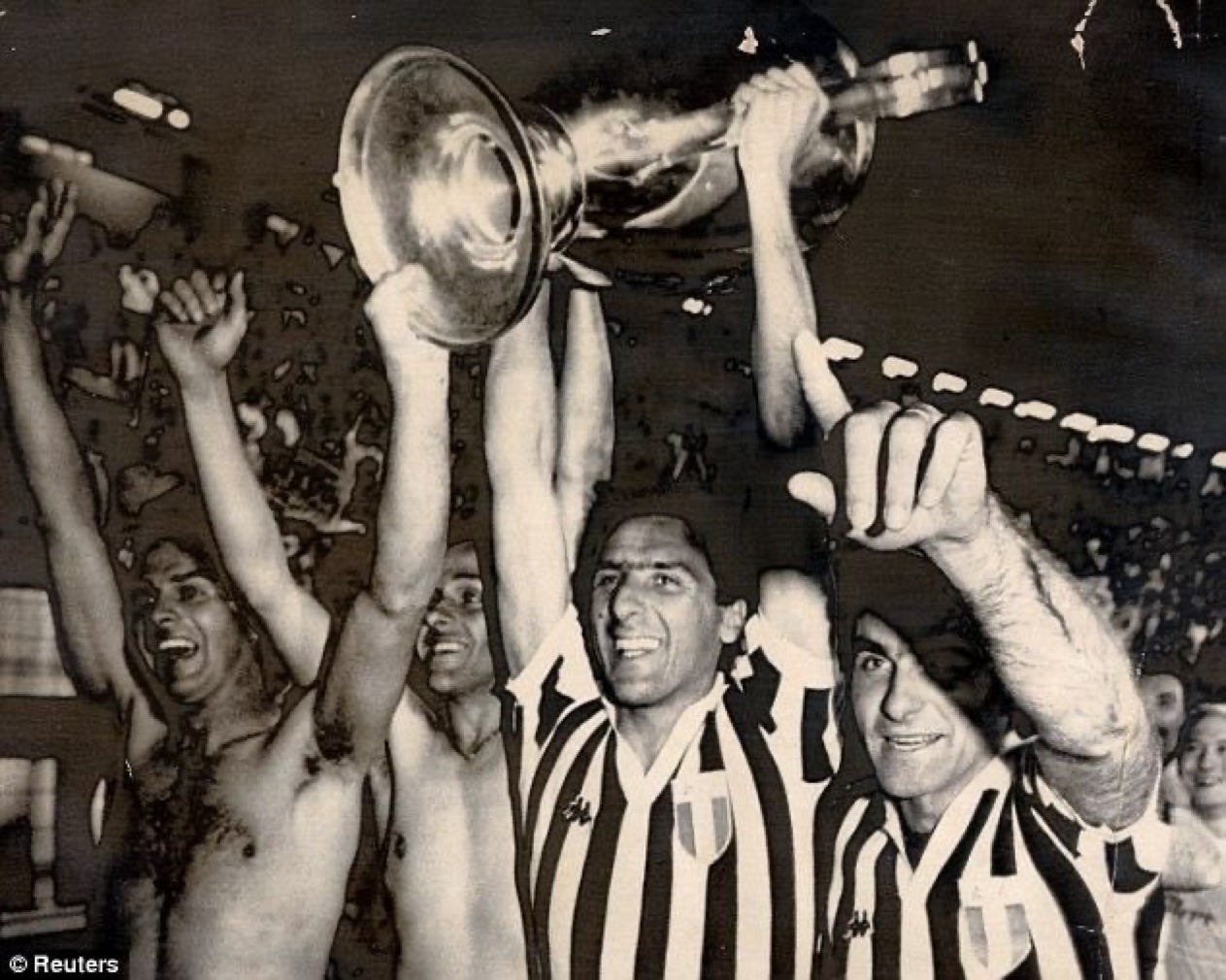

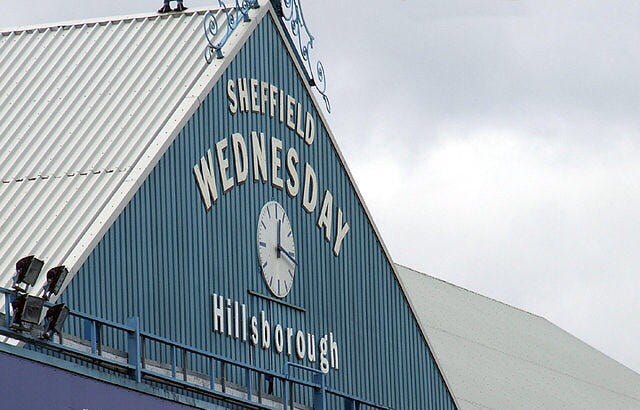
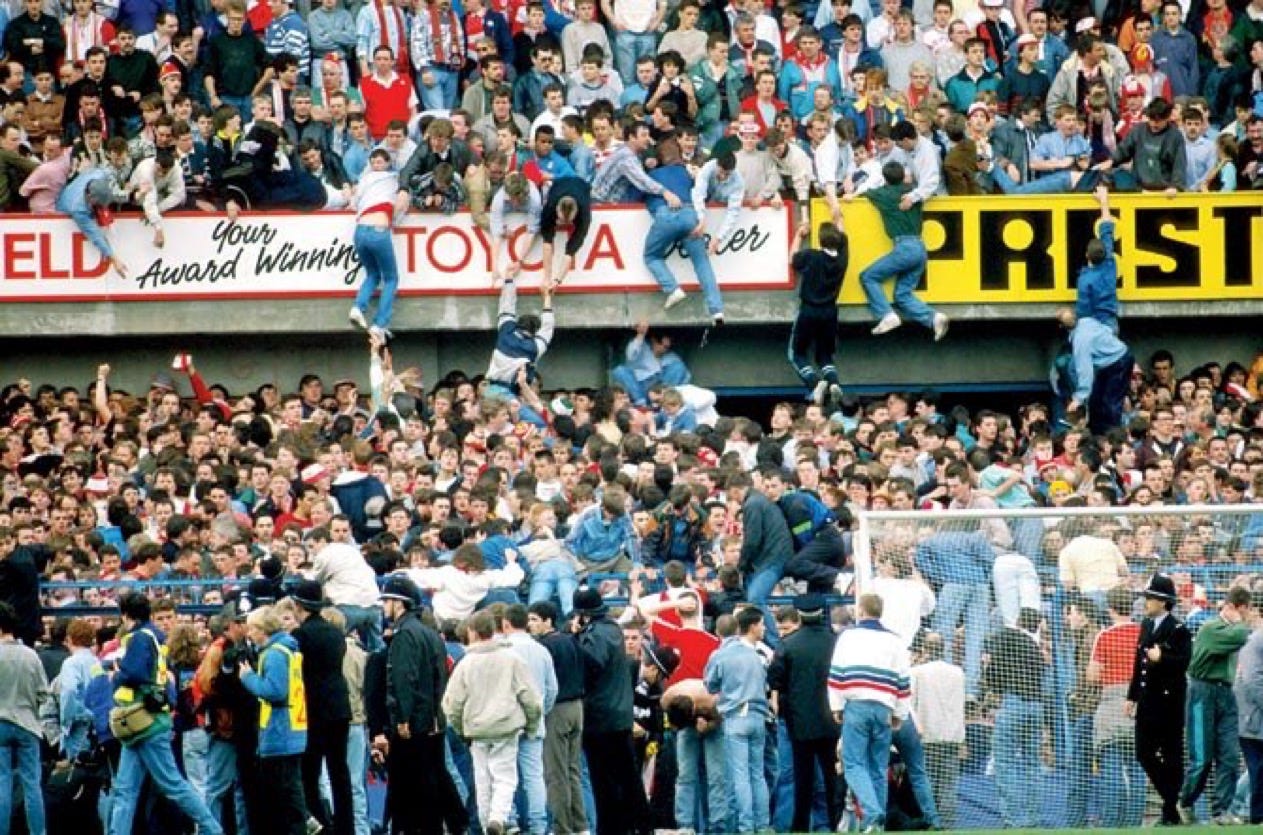

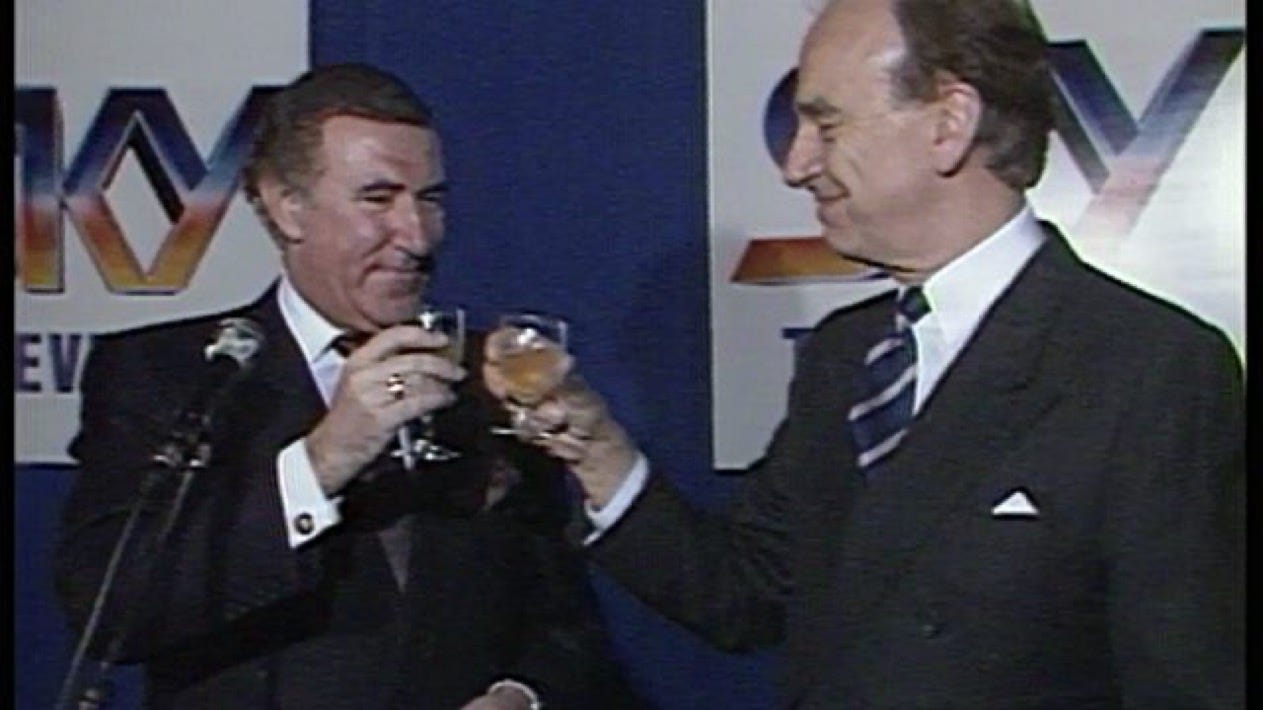
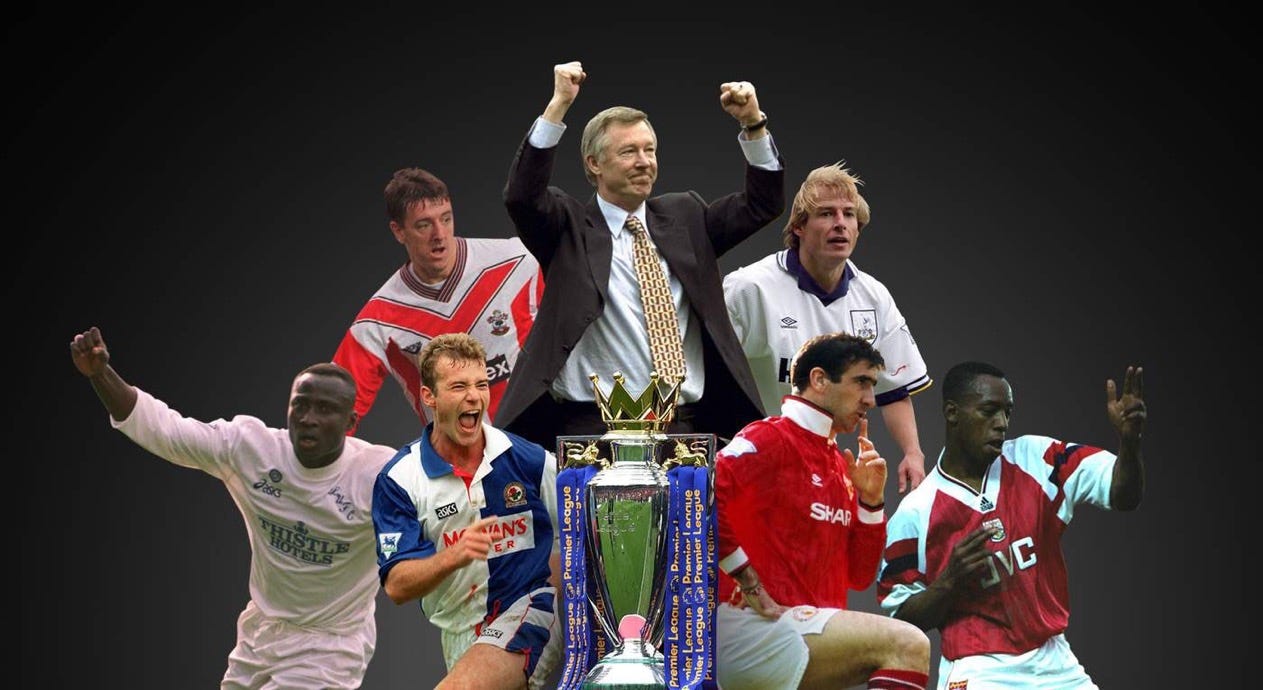
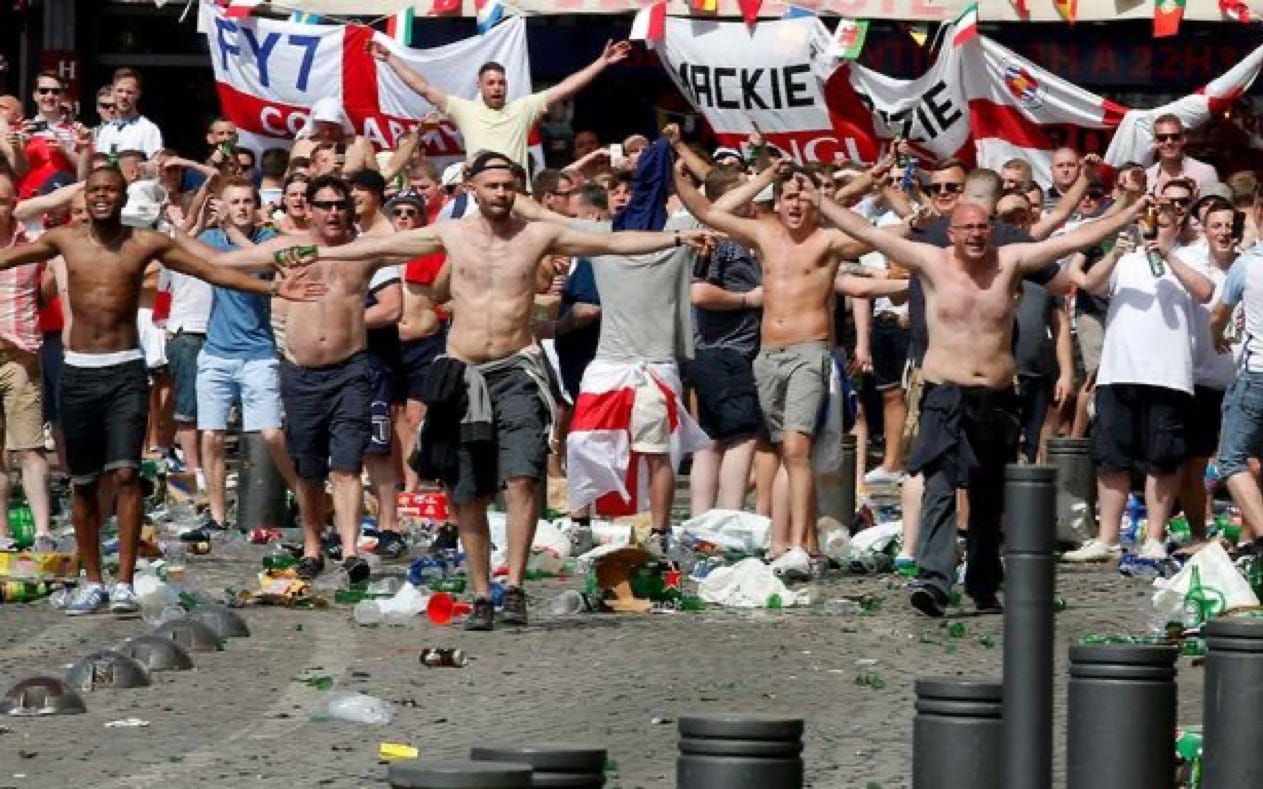
Good post. The history of football hooliganism has always been something which has interested me, even though I’m not a particular keen football fan myself. The transformation of the sport with the advent of the Premier League (not always for the better) likewise.
Sorry to be pedantic finally, but the Hillsborough disaster was during an FA Cup semi final in fact.